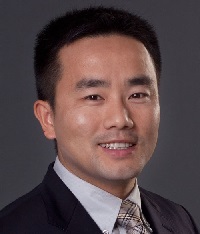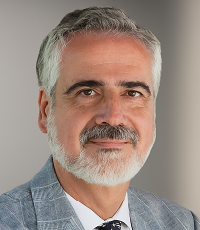- icrceconf@126.com
- +86-132-9000-0003
ICRCE Speakers
Thanks for your support to ICRCE, and welcome to deliver the keynote & plenary speeches!
Keynote Speakers_ICRCE 2026
IEEE Fellow
Prof. Carlos Bordons, University of Seville, Spain
- Carlos Bordons is a Professor in the Department of Systems Engineering and Automatic Control at the University of Seville, where he has been a faculty member since 2008. He holds a Ph.D. in Electrical Engineering from the same university. His research focuses on Advanced Control of Systems and Processes, with a strong emphasis on Model Predictive Control (MPC) applied to renewable energy and energy-efficient systems. He has led or participated in numerous research and industrial projects in areas such as the control of renewable energy microgrids, optimization of oil pipelines, automation of olive oil production, solar-powered HVAC systems, and fuel cell control for mobile applications. He is the founder and current Director of ENGREEN, the Engineering Laboratory for Energy and Environmental Sustainability, recognized as a Unit of Excellence at the University of Seville.
- Professor Bordons has authored several influential books on MPC, including three editions published by Springer-Verlag and a volume on MPC for Microgrids by Springer Nature. His academic output includes over ninety papers in international journals and more than one hundred conference papers. He has supervised 18 Ph.D. theses in the field of Automatic Control. He has held leadership roles in prominent organizations, serving on the Council of the European Union Control Association (EUCA) and the Spanish Committee of Automatic Control (CEA-IFAC). From 2008 to 2012, he was Managing Director of AICIA, promoting collaboration between academia and industry. Since 2015, he has represented university research groups on the board of the Corporación Tecnologica de Andalucía (CTA).
- He serves as a visiting professor at the University of Technology Sydney and the Federal University of Santa Catarina in Brazil. Professor Bordons is a Fellow of both the IEEE and the Asia-Pacific Artificial Intelligence Association.
- Speech Title: Bridging Model Predictive Control and Hydrogen for Smarter, Sustainable Energy Systems
- Abstract: Hydrogen is rapidly gaining momentum as a key enabler of clean, flexible, and efficient energy systems, particularly in the context of decarbonization and renewable integration. At the same time, Model Predictive Control (MPC) has emerged as a powerful control strategy for managing complex, multivariable, and constrained systems — making it particularly well-suited for hydrogen-based applications. This talk explores the intersection of MPC and hydrogen technologies, with a focus on how advanced control methods can enhance the performance, reliability, and efficiency of hydrogen energy systems across various domains, including fuel cells, electrolyzers, microgrids and mobile applications. After a brief overview of hydrogen’s role in future energy landscapes, the talk will highlight specific challenges faced by hydrogen systems — such as nonlinear dynamics, strong coupling, and operating constraints — and demonstrate how MPC can address them. Case studies will be presented, covering applications in mobile and stationary systems, microgrids, and energy storage. The talk concludes with a discussion on future research directions and the role of MPC in enabling intelligent, sustainable, and scalable hydrogen-based solutions.
 IEEE Fellow
IEEE Fellow
Prof. Chengbin Ma, Shanghai Jiao Tong University, China
Dr. Chengbin Ma received the B.S. degree in industrial automation from the East China University of Science and Technology, Shanghai, China, in 1997, and the M.S. and Ph.D. degrees in electrical engineering from The University of Tokyo, Tokyo, Japan, in 2001 and 2004, respectively. From 2004 to 2006, he was an R&D Researcher with the Servo Motor Laboratory, FANUC Limited, Yamanashi, Japan. Between 2006 and 2008, he was a Postdoctoral Researcher with the Department of Mechanical and Aeronautical Engineering, University of California, Davis, USA. In 2008, he joined the University of Michigan-Shanghai Jiao Tong University Joint Institute, Shanghai Jiao Tong University, Shanghai, where he is currently a Professor of electrical and computer engineering. His research interests include battery and energy management, wireless power transfer, dynamics and motion control, and a wide range of applications in electronic devices, electric vehicles, microgrids, smart grids, etc.
Dr. Ma was the recipient of many teaching and research awards at Shanghai Jiao Tong University, such as Koguan Top Ten Best Teacher Award in 2017 and Koguan Top Ten Research Group Award in 2014, and the recipient of Research Excellence Award from AirFuel Alliance, USA, in 2019 and Science and Technology Progress Award, China Power Supply Society, in 2024, etc. He is an IEEE Fellow and Associated Editor for the IEEE Transactions on Industrial Informatics (2016-2022) and IEEE Journal of Emerging and Selected Topics in Industrial Electronics. He served as Delegate of Energy Cluster (2019-2020), and is currently Delegate of Cross-disciplinary Cluster (2024-2025), IEEE Industrial Electronics Society.

